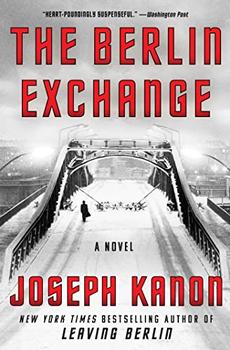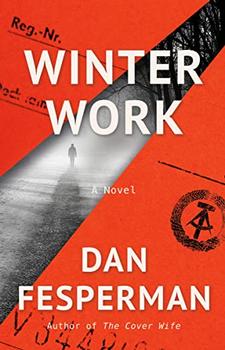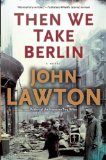Summary | Excerpt | Reading Guide | Reviews | Beyond the book | Read-Alikes | Genres & Themes | Author Bio

A Novel
by Joseph KanonAmerican physicist and former KGB spy Martin Keller has just spent 10 years in the British prison system, when his incarceration comes to a sudden end. Without learning why, Martin has been selected as one half of a spy swap at a discreet border crossing separating East and West Berlin. The exchange takes place with all the mummery typical of these forensically covert events. This is the Cold War, and Martin is in no position to ask questions. What he does know, however, is that his former wife Sabine and son Peter are living in East Berlin. The situation is complicated by the knowledge that the facilitator of the exchange, lawyer Kurt Thiele, is now married to Sabine and is Peter's stepfather.
Once back in Berlin, Martin reconnects with Sabine and develops a relationship with Peter, always under the watchful eye of Kurt. Peter, it transpires, is the darling of the German Democratic Republic's (GDR) entertainment scene, with a starring role in a state-produced television program. It is clear to Martin that his son is a pawn in the government propaganda machine. It is clear too that there is some disingenuous purpose behind the decision to bring Martin himself back to Berlin. His knowledge of physics has become outdated, hence redundant. He is no longer at the acme of his scientific career. All he knows at this point is that he is "a chess piece being moved by someone else." But who? And why?
After something of a — necessary — slow burn, the action heats up when Martin inadvertently becomes embroiled in Kurt's clandestine undertakings: "His life was in Kurt's hands now. And Kurt's in his." The chilliness of living in East Germany sets in as Martin is first followed, then coerced into illegal activity, and finally prepared to be banished to Dresden, where he is to be tasked with engineering bombs. His sense of helplessness is compounded by his discovery that Sabine has cancer and is living on borrowed time. Martin realizes that he has "exchanged one prison for another." So this is the pivotal point in the narrative: Should he stay and endure a lifetime of servility to a state that monitors and directs his every move, or risk a daring — indeed, suicidal — escape mission with Sabine and Peter in tow? The second half of the novel proceeds at a distinctly faster pace than the first, seamlessly morphing from measured stealth to throbbing tension.
Kanon's sparse, utilitarian prose perfectly echoes the austerity of the novel's setting and mimics the cadence of the GDR's propaganda of denial: "There is no crime in the Republic." Through Martin's eyes (the narrative is in close third person) the reader is confronted with the paranoia of East Berlin, the brainwashing of its citizens and its morass of corruption. At one point Martin lets slip that one could almost pretend this was a "real place" — that is, "[u]ntil someone look[s] you in the eye." The writing style is complemented by the high volume of dialogue, through which the guardedness of the characters is revealed. Somehow, despite the frigorific prose, Kanon conveys a warmth in Martin's character and has the reader rooting for him. There is a hint that, beyond the clutches of a voyeuristic and controlling environment, he could epitomize the regular "good guy."
The Berlin Exchange is an intelligent and incisive read, without being overly cerebral — it lacks the nuanced layers of John Le Carré spy fiction but makes up for it in entertainment and accessibility. The exposition is assured and the reader is never in doubt that this novel is crafted by someone comfortable within the genre. Ultimately, plot characterization and setting blend smoothly together and depend on one another for overall impact — an impact that authentically captures the zeitgeist of the Cold War.
![]() This review was originally published in The BookBrowse Review in March 2022, and has been updated for the
April 2023 edition.
Click here to go to this issue.
This review was originally published in The BookBrowse Review in March 2022, and has been updated for the
April 2023 edition.
Click here to go to this issue.

If you liked The Berlin Exchange, try these:

by Dan Fesperman
Published 2023
An exhilarating spy thriller inspired by a true story about the precious secrets up for grabs just after the fall of the Berlin Wall - from the acclaimed author of The Cover Wife

by John Lawton
Published 2014
A gripping, meticulously researched and richly detailed historical thriller - a moving story of espionage and war, and people caught up in the most tumultuous events of the twenty-first century.
A library is a temple unabridged with priceless treasure...
Click Here to find out who said this, as well as discovering other famous literary quotes!
Your guide toexceptional books
BookBrowse seeks out and recommends the best in contemporary fiction and nonfiction—books that not only engage and entertain but also deepen our understanding of ourselves and the world around us.